Editorial note: We are publishing several opinion articles about the evolving conflict between Israel and Hamas. These articles do not represent the views of The Advocate, the Editorial Board, or Albuquerque Academy. We hope you will read them and leave with an appreciation of the complexity of this issue that spurs you to learn more. We welcome – and hope – to publish more opinions from the community. If you would like to write on this topic for The Advocate, please contact us by emailing [email protected]. The Advocate reserves the right to deny publication of any piece at any time. We will not tolerate attacks on our writers or discrimination in any form against any group. Read our full editorial statement here.
Since Hamas’s attacks on various Israeli settlements as far north as Tel Aviv on Saturday, October 7, a chain of events has occurred which, as a Palestinian-American, feels painfully predictable. From Hamas’s original ambush, to President Biden’s various remarks of US solidarity with Israel, the crackdown on pro-Palestinian protests worldwide, and everything in between, nothing is as “surprising” as Western media would have you believe.
The story of Israel’s occupation of Palestine is nearly three quarters of a century old, but most imminent right now is the modern history of Gaza, beginning roughly around 2005 at the end of the Second Intifada, or “uprising,” the first one being in the 1980s. Israel’s attempts at settling parts of the Gaza Strip were stunted and ultimately tabled in the wake of the Second Intifada and the attacks on those settlements. At the time, Israel’s disengagement seemed like a victory for Gaza’s citizens and perhaps a new beginning. Israel practices settler-colonialism – a term, in the most basic sense, to describe the process of dispossession and settlement on land occupied by a native people by a colonizing force, as well as the erasure, violence, and mindset which realize the project. This process was by no means ended in Gaza after Israel’s disengagement – many Gazan citizens are refugees from the 1948 Nakba, where hundreds of thousands were displaced by the original European-backed Israeli settler enterprise – but it presented an opening for some level of autonomy.
The opening, however, was quickly shut by Israel and Egypt. Israel’s disengagement was just the beginning of a new age of Gazan oppression. Shortly following “disengagement,” Israel and Egypt enacted a blockade on Gaza, ushering in the current situation, often described as an “open-air prison” due to the virtual impossibility of getting in or out of Gaza for Palestinians and the brutal conditions – low economic prospects, poor infrastructure, restricted freedom of movement, and more – which mark Gazans’ existence.
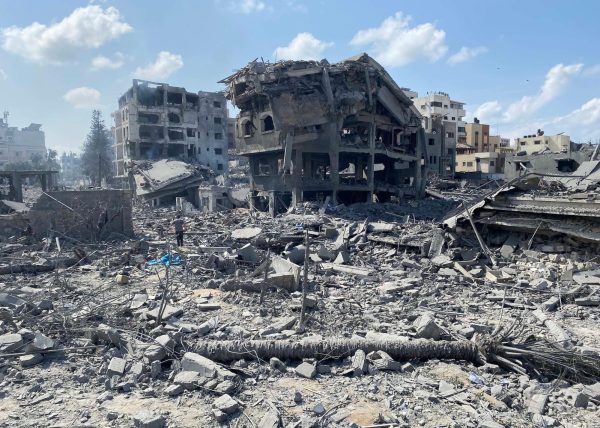
Internal conflict, not uncommon within Palestine’s fractured “leadership,” resulted in Hamas gaining “control” over Gaza, while the opposition party, Fatah, commonly associated with the Palestinian Liberation Organization (PLO) or Palestinian Authority (PA), gained control over the West Bank. None of the leading Palestinian state bodies hold any significant power due to Israel’s monopoly on power in the region, making independent statehood near impossible, but the diplomatic-leaning PLO was recognized as the legitimate body representing Palestine while Hamas, classified as a terrorist organization by the US and Europe since the 1990s, came to be seen as the illegitimate Palestinian state. Thus began the past two decades of suffering in Gaza under a brutally oppressive Israeli state, marked by humanitarian crises and intermittent conflict. Gaza is one of the most densely populated regions in the world with a population of over two million. Its population is overwhelmingly young, with more than 40% under 16 due to a remarkably high birth rate. Furthermore, Gaza is largely at the mercy of Israeli whims, as a significant portion of its critical infrastructure, including but not limited to food, water, and electricity are managed or controlled by Israel. Conflict between Israel and Hamas, thus, not only presents an immense danger to civilians due to Israeli missiles and bombings in an extremely densely populated area, but also given Israel’s ability to switch off critical resources to Gaza.
Only with an understanding of this context can we approach the current situation. As colonial superpowers with a legacy of having scant concern for certain (brown and black) lives, Israel and the United States will continue to paint Hamas as the aggressor using racialized language and profiling, lies, and propaganda. Israel, the US, and Europe, however, are accountable for not only this most recent violence but much of the violence of the last 75 years. Believing that the colonial process is a thing of the past, whether consciously or subconsciously, blinds us from seeing its manifestations right in front of us. It is no accident that the countries which were and are built upon wealth extracted from their own colonial and imperial endeavors across the world are the same countries that will continue to aid in the colonial project in Palestine.
I never advocate for violence and Hamas’s attack is no exception. Do not misconstrue my lack of focus on Israeli casualties as apathy for their suffering. To justify Hamas in their attacks on citizens would stoop to Israel’s employment of collective punishment and contradict and invalidate critiques of that mentality. Alternatively, the suffering of those families should not be used to justify further violence.
Hamas’s attack was by no means a surprise. It was a predictable response to decades of oppression and ruthless murder by Israel, but the repercussions of their action should have also been abundantly clear to Hamas. The group’s devastating attack benefits no parties and by its nature doesn’t reflect the will of Palestinians broadly, but expecting an oppressed people to die quietly is unrealistic. Israel will continue to push the same dehumanizing narrative with full backing of the US, painting the situation as a matter of civility versus terror. Israeli Defense Minister Yoav Gallant summed it up, “We are fighting against human animals, and we are acting accordingly.”
Gallant’s quote shouldn’t be taken lightly, but rather should act as a warning to anyone who truly cares for human lives. Hamas’s threat to civilians has been subdued, but their violence is only the beginning of something much larger; right now we are watching an impending genocide unfold in Gaza, much worse than Israel’s usual “mowing the grass.”
Biden’s delayed calls on Israel to minimize civilian casualties in Gaza lack candor and at best mark a move that is much too little, much too late. We should not be congratulating the US for their empty words and “successes” of the barest minimum. The US continues “ironclad” support for Israel, supplying them with billions of dollars in aid and weapons. If the US had any care for the wellbeing of Palestinians, they would have sought to improve Palestine’s situation long ago, but the economic, ideological, and political ambitions of the United States abroad often contradict their stated values. The “pressure” which the US places on Israel over the atrocities that the US is funding and supplying is the peak of hypocrisy.
Beginning with cutting off all electricity, water, gas, and food transport into Gaza, Israel is and will continue to run afoul of international law in their retaliation to Hamas’s attacks. Gaza’s population of mostly females and children are experiencing a certain form of hell on Earth; civilians who do not fall victim to indiscriminate bombings and white phosphorus attacks will likely be murdered in ground invasions, if they have not already died from starvation or thirst. Israel’s warning to civilians in Gaza to evacuate south was called an “impossibility” by the United Nations, with Israel targeting fleeing civilians and civilian centers. Furthermore, accurately and adequately reporting Israel’s violence in Gaza – already made difficult by Israel and its Western allies’ knowingly false narratives about the siege – has been made near-impossible in recent days as Israel has shut off nearly all communications coming from Gaza as they ramp up their bombings and ground attacks in the region.
This is just the beginning of a horrific chapter in the Israel-Palestine story, and Israeli violence will be greenlighted or ignored by the international community unless action is taken immediately to hold our representatives accountable to the values they claim to uphold. Worldwide demonstrations prove that there remains a significant amount of support for Palestine. That the Biden administration took any action to get humanitarian aid to Gaza was only possible due to pressure from voters and lawmakers calling for the US to acknowledge and put an end to the oppression and violence it’s enabling. It isn’t even close to near enough right now.
As much as it may at times feel hopeless, the only way to make change is through actions and words, such as contacting a representative, showing up for a demonstration or protest, giving aid to groups supporting Palestine, such as Amnesty International or Jewish Voice for Peace, among others, or divesting from companies and organizations that aid in Israel’s occupation. These things I say to myself as much as in a plea to readers. Watching Israel’s atrocities under the usual guise of “self-defence” is painfully familiar, but I won’t and I can’t sit aside and watch a genocide. Neither should you.
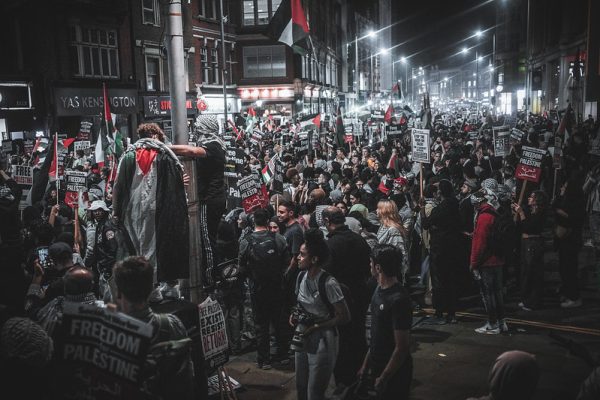


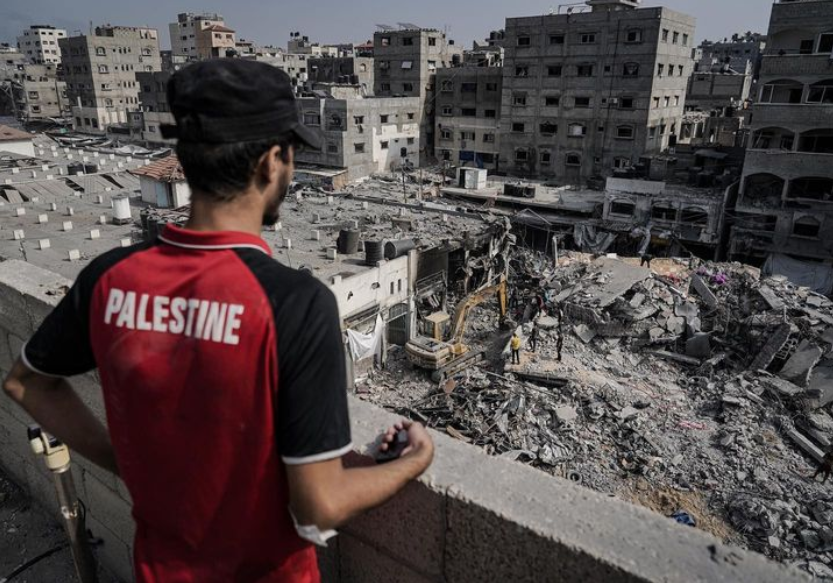



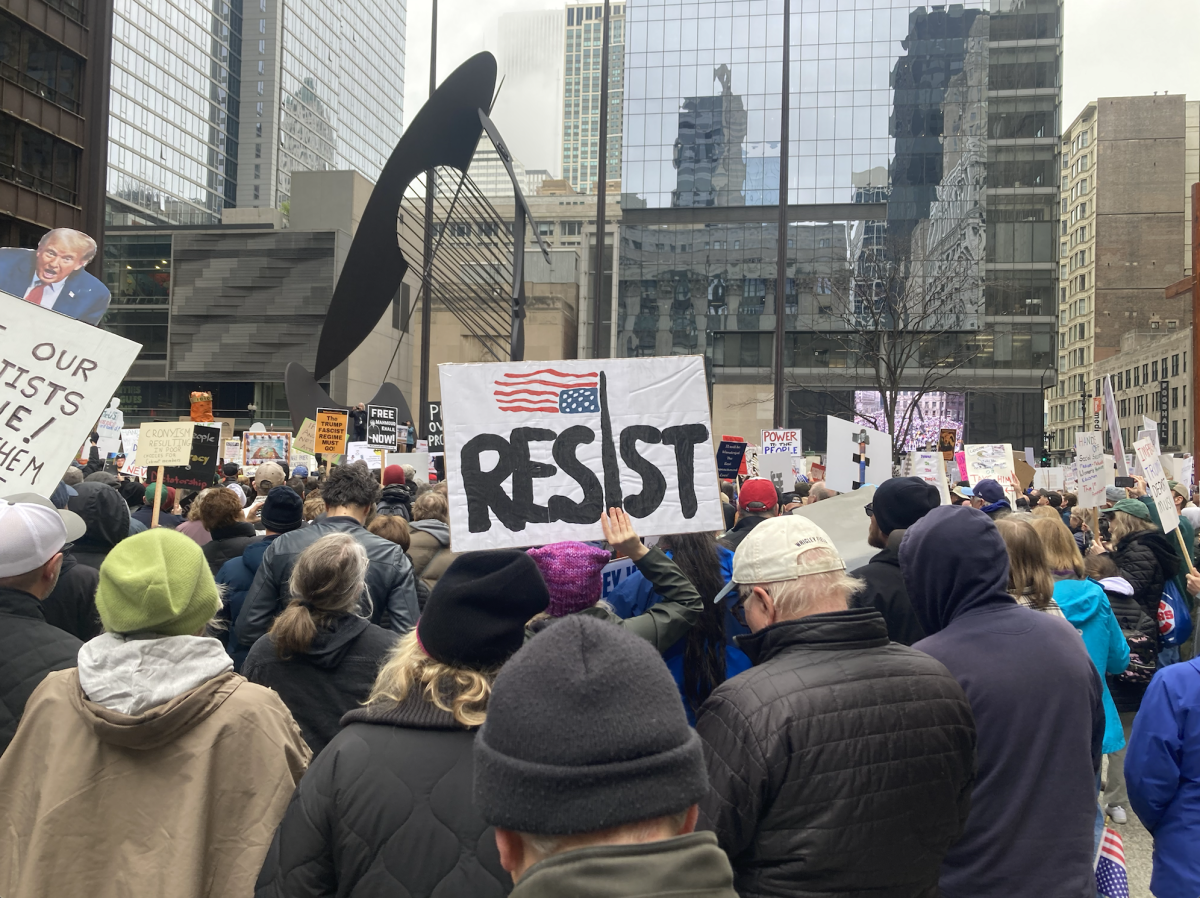

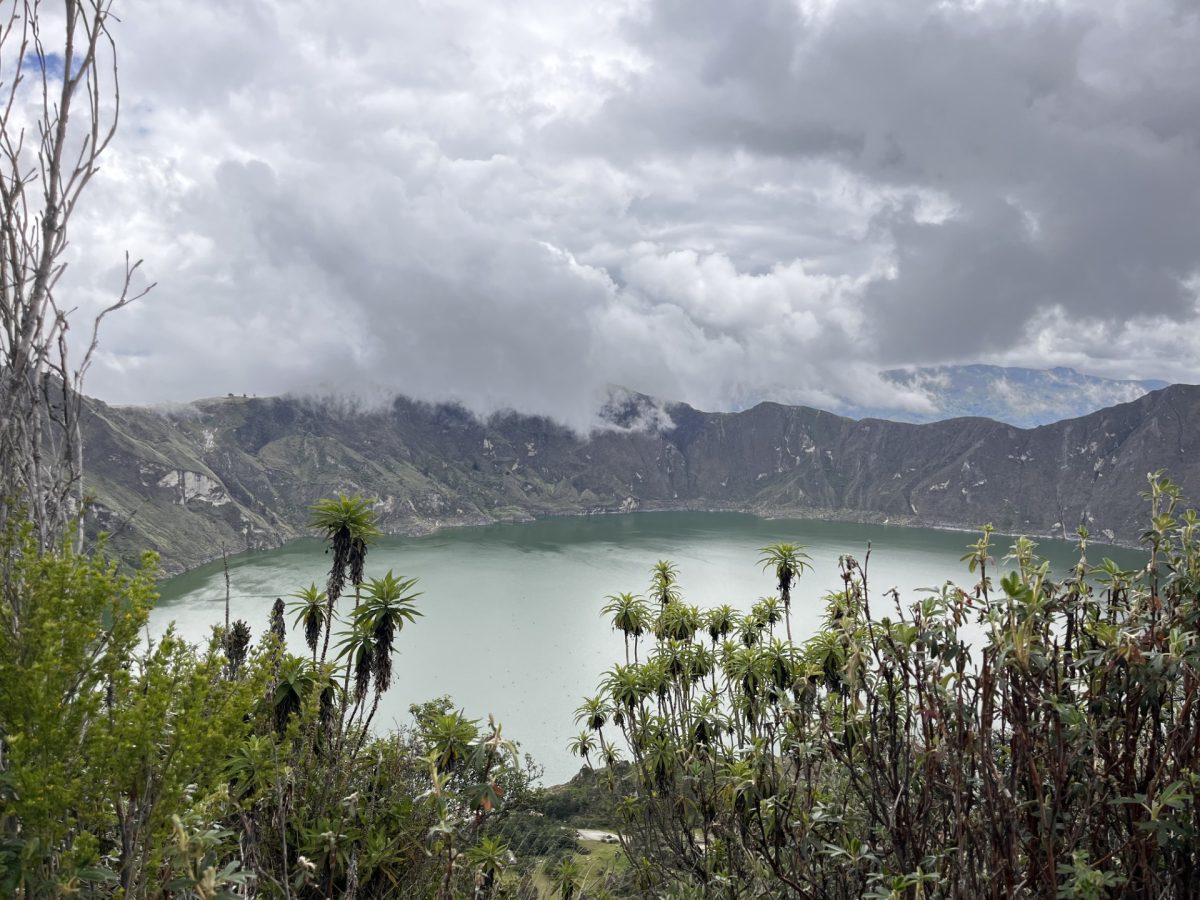

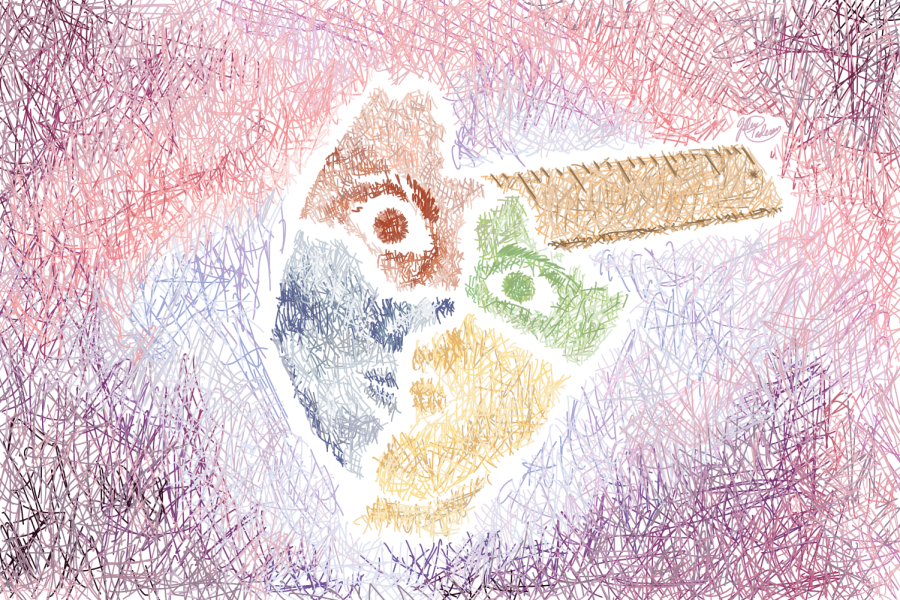




Anonymous • Nov 8, 2023 at 8:12 pm
Very well written article. I applaud writer’s courage to present his/her understanding of the conflict at a time when speaking about sufferings of Palestinian people is under attack. Everyone who talks about this risks being called anti-Semite. I also appreciate the Advocate’s openness and presenting an opportunity to students to present opinion on either side of the conflict.
No one is supporting what Hamas did. I mourn the loss of Israeli civilians in the same way as I mourn the deaths and injuries of Palestinian civilians (40% of these being innocent children). As a parent, I cannot even imagine the feelings of Palestinian parents who cannot protect their children against indiscriminate bombing.
Writer has correctly described the conflict as ‘settler-colonialism’. While imperial colonialism vanished during the last century, its legacy still lives on. We are living in a time where oppressed are being blamed for their sufferings. Anyone who is interested to learn about the conflict should see the changing map of the region over the last 100 years and decide who is the oppressor and who is being oppressed.
In words of Malcolm X, “If you’re not careful, the newspapers will have you hating the people who are being oppressed, and loving the people who are doing the oppressing.”
Although, the writer mostly talked about modern history of Gaza, this apartheid and genocide has continued for more than a century. Apartheid and genocide are really big words and I am not using these lightly. It is a huge failure on part of the nations of the world in general and US in particular to let this happen.
Mark Fine • Nov 2, 2023 at 2:56 pm
The history is a bit one-sided, but I think this is a well-written and well-reasoned critique of Israeli and US policy. I applaud the Advocate for inviting the dialogue.
Linda Butros • Nov 1, 2023 at 11:40 pm
Thank you for speaking truth.